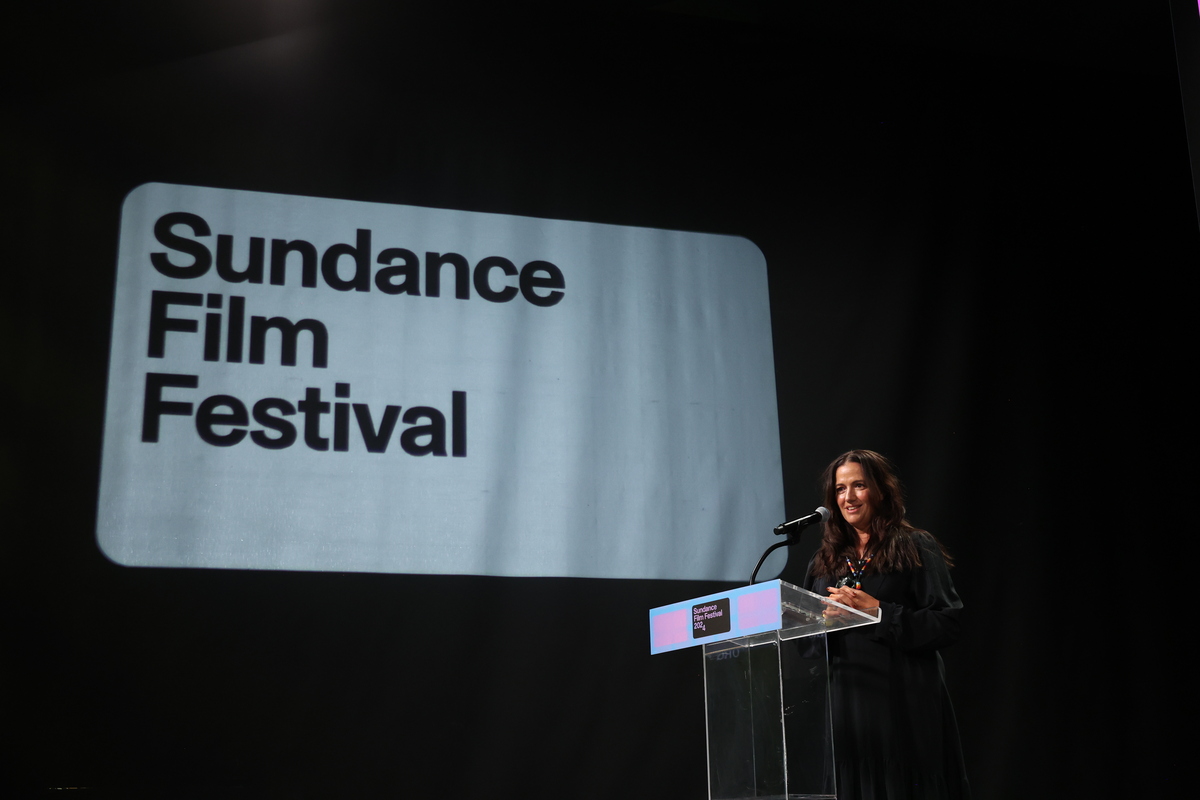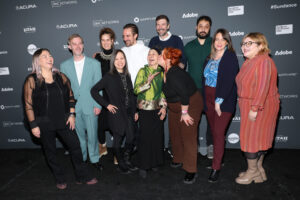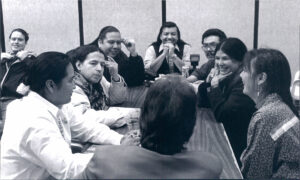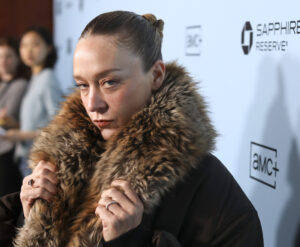Libby Hakaraia speaking at the 2024 Sundance Film Festival. Photo by Jovelle Tamayo.
By Katie Arthurs
From the Ainu people of Ainu Mosir to the Sámi people of Sápmi. The Māori in Aotearoa to the Achuar of the Amazon. Hundreds of thousands of Indigenous cultures occupy every corner of the globe and each of them have their own unique stories that need to be told. No one knew this need to carve a real place for Indigenous Cinema within our artistic landscape more than Merata Mita. Mita was a mother, filmmaker, and fierce global advocate for Indigenous voices who used her filmmaking to advocate and speak for her people all throughout her life.
In 2016, Bird Runningwater (Sundance Institute’s Indigenous Program director from 2001–2021) continued Mita’s legacy by launching the Merata Mita Fellowship. Named in honor of Merata, who served as an advisor and artistic director of the Sundance Institute Native Lab from 2000 to 2009, this fellowship carries on Mita’s efforts by supporting an Indigenous women–identified artists endeavoring to direct a feature film. Since it launched, the fellowship has supported eight filmmakers from across the globe: from Ciara Leina’ala Lacy (Kanaka Maoli) to our current Merata Mita Fellow Libby Hakaraia (Ngati Kapu, Ngati Raukawa au ki te tonga).
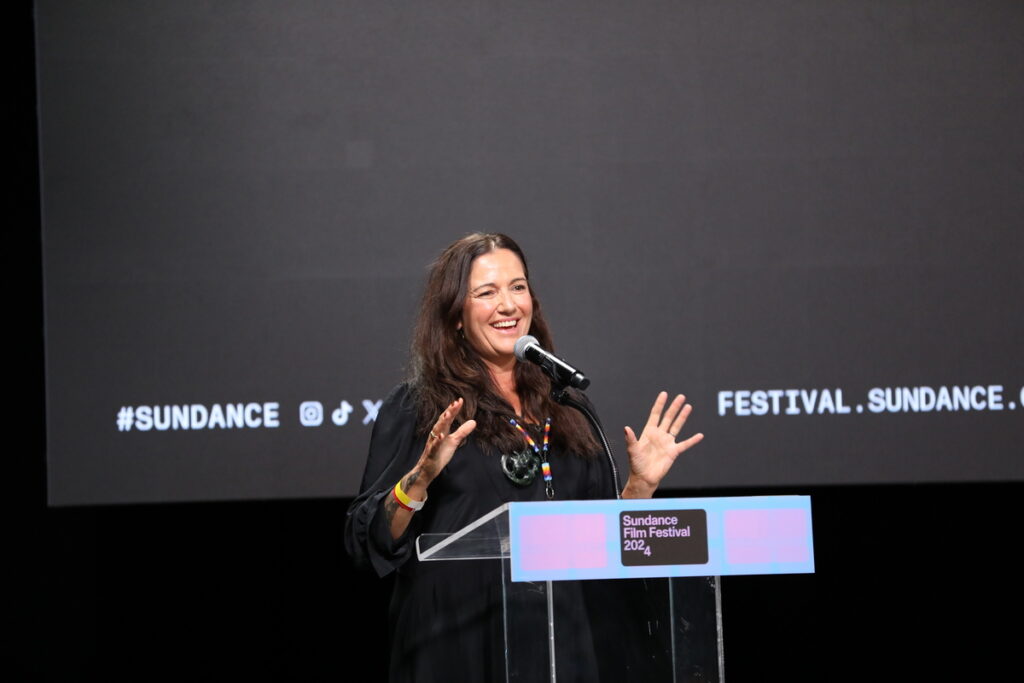
During the Native Forum Celebration during the 2024 Sundance Film Festival, Hakaraia reflected on the legacy of Mita and the bright future of Indigenous storytelling:
“I am not much into writing speeches, but I was up late last night. Mostly because of the jet lag, but because Merata’s voice was in my head. It’s in my head nearly all the time. I wanted to hear her, some of the things that she would say.
Back in the day when I started, I’ve done nothing else but work as a storyteller. From the time I was expelled from school to now. I did a Google search at three in the morning and I found an interview on Radio New Zealand that I did with Merata in 1996 — that’s 28 years ago — and in that interview she was talking about the 100 year celebration of New Zealand Cinema. In that interview she said there is nothing to celebrate. We are still held by the power brokers and those that stop us from doing what we naturally need to do. None of us come into this world as storytellers because we want to do this. — there is nothing else that we can do, we have to be storytellers. She talked about the gatekeepers and she talked about the festivals across the world not recognizing the work of Indigenous film storytellers.
I reflect on those 28 years and wonder whether much has changed. I believe things have changed. But in this room, we have the dynamism and the power and the unflinching brave hearts of people that are prepared to go further and go beyond anybody else’s critique. There are partners and allies in this room and I ask all of you to get alongside these Indigenous storytellers because Indigenous storytelling is the truth of our humanity. My husband, Tainui,who’s a filmmaker, often says Indigenous People will save the world. We won’t get the credit for it, but we will save the world because in our knowledge are all of the truths.”
Today, fittingly on Indigenous People’s Day, the Sundance Indigenous program sends out the call across the globe for woman-identifying Indigenous storytellers to share their stories and apply to the 2025 Merata Mita Fellowship.
Click here to apply. The application is open from October 14–28th, 2024.




